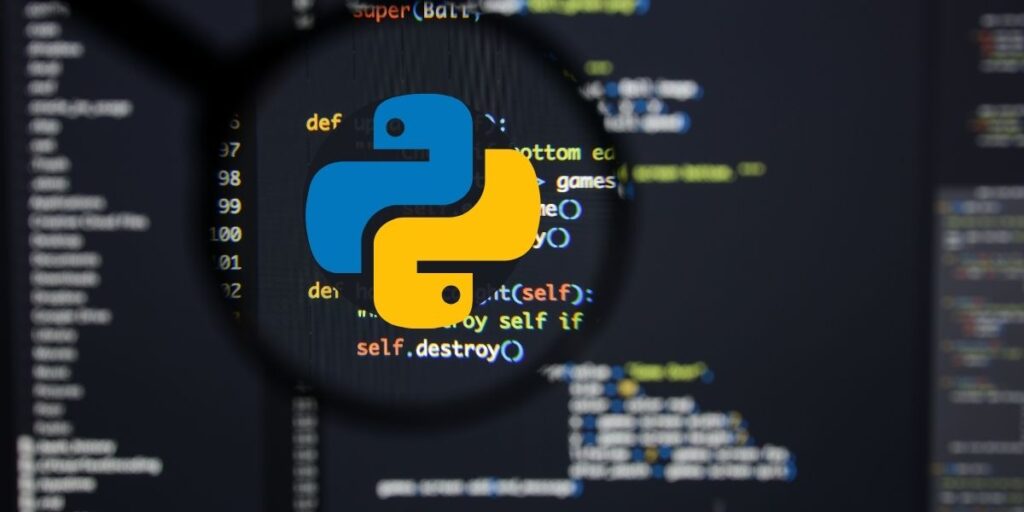Python is a versatile and powerful programming language that has gained immense popularity among developers. It offers a wide range of tools and libraries that make it suitable for various applications, from web development to data analysis. In this article, we will explore ten Python hacks that every developer should know. These hacks will not only enhance your productivity but also help you write cleaner and more efficient code. So let’s dive in!

Python is renowned for its simplicity and readability, making it a popular choice among programmers. These ten Python hacks will demonstrate some advanced techniques that can significantly improve your coding skills and productivity. By incorporating these hacks into your workflow, you can streamline your development process and write more efficient code.
Table of Contents
Hack 1: List Comprehensions
List comprehensions provide a concise way to create lists in Python. They allow you to generate a list using a single line of code, eliminating the need for traditional loops. By leveraging list comprehensions, you can write cleaner and more readable code. For example:
squares = [x ** 2 for x in range(1, 11)]Hack 2: Context Managers
Context managers enable you to manage resources efficiently and ensure their proper initialization and cleanup. The with statement in Python simplifies the management of resources by automatically handling the setup and teardown operations. By using context managers, you can avoid resource leaks and make your code more robust.
with open('file.txt', 'r') as f:
data = f.read()Hack 3: Decorators
Decorators provide a way to modify the behavior of functions or classes without directly changing their source code. They allow you to add functionality to existing functions dynamically. Decorators are widely used in frameworks and libraries to implement features such as logging, authentication, and caching.
def log_time(func):
def wrapper(*args, **kwargs):
start_time = time.time()
result = func(*args, **kwargs)
end_time = time.time()
print(f"Execution time: {end_time - start_time} seconds")
return result
return wrapper
@log_time
def my_function():
# Function code hereHack 4: Lambda Functions
Lambda functions, also known as anonymous functions, allow you to create small, single-expression functions without explicitly defining them. They are particularly useful in situations where a small function is required, such as sorting or filtering data. Lambda functions offer a concise syntax and can enhance the readability of your code.
numbers = [1, 2, 3, 4, 5]
squared_numbers = list(map(lambda x: x ** 2, numbers))Hack 5: String Formatting
String formatting in Python allows you to create dynamic strings by embedding variables or expressions within
them. Python offers multiple ways to format strings, including the f-string format, the str.format() method, and the legacy % operator. Proper string formatting improves code readability and simplifies the creation of complex strings.
name = "John"
age = 30
formatted_string = f"My name is {name} and I am {age} years old."Hack 6: Default Arguments
Default arguments allow you to specify optional parameters for a function. When a default value is provided for an argument, it becomes optional, and if the caller does not provide a value, the default value is used instead. Default arguments enhance the flexibility and usability of your functions.
def greet(name, greeting="Hello"):
print(f"{greeting}, {name}!")
greet("John") # Output: Hello, John!
greet("Emma", "Hi") # Output: Hi, Emma!Hack 7: Generator Functions
Generator functions enable you to create iterators in a memory-efficient manner. Unlike regular functions that return a value and terminate, generator functions can yield multiple values over time. They are ideal for processing large datasets or generating sequences without consuming excessive memory.
def fibonacci():
a, b = 0, 1
while True:
yield a
a, b = b, a + b
fib = fibonacci()
print(next(fib)) # Output: 0
print(next(fib)) # Output: 1
print(next(fib)) # Output: 1Hack 8: Enumerate
The enumerate function allows you to iterate over a sequence while also keeping track of the index. It returns a tuple containing both the index and the value of each element. Enumerate simplifies the process of iterating over sequences and is especially useful when you need to access both the index and the value within a loop.
fruits = ["apple", "banana", "cherry"]
for index, fruit in enumerate(fruits):
print(f"Index: {index}, Fruit: {fruit}")Hack 9: Using Libraries
Python has a vast ecosystem of libraries that extend its capabilities. By leveraging these libraries, you can save time and effort when implementing complex functionalities. Some popular libraries include NumPy for numerical computations, Pandas for data manipulation, and Matplotlib for data visualization.
import numpy as np
import pandas as pd
import matplotlib.pyplot as pltHack 10: Debugging Techniques
Debugging is an essential skill for developers, and Python provides several techniques to help you identify and fix issues in your code. The print() function, for example, allows you to inspect the values of variables at runtime. Additionally, Python offers a built-in debugger called pdb that provides a more interactive debugging experience.
import pdb
def divide(a, b):
result = a / b
pdb.set_trace()
return result
divide(10, 0)Conclusion
In this article, we have explored ten valuable Python hacks that can boost your productivity and improve the quality of your code. From list comprehensions to debugging techniques, each hack offers a unique way to enhance your Python skills. By incorporating these hacks into your development workflow, you can become a more proficient and efficient Python developer.
FAQs
Q1: Are these Python hacks suitable for beginners?
Some of the hacks may require a basic understanding of Python programming concepts. However, many of them can be easily grasped by beginners and provide valuable insights into Python development.
Q2: Can these hacks be applied to Python 2.x?
Most of the hacks mentioned in this article are applicable to Python 2.x as well. However, it is recommended to use Python 3.x as it offers improved features and support.
Q3: Are there any performance considerations when using these hacks?
While these hacks can improve code readability and productivity, it’s important to consider performance implications. Depending on the specific use case, some hacks may have performance trade-offs that need to be evaluated.
Q4: How can I further improve my Python skills?
Practice and continuous learning are key to improving your Python skills. Explore advanced topics, participate in coding challenges, and contribute to open-source projects to gain more experience.
Q5: Where can I find more Python resources and tutorials?
There are numerous online platforms, websites, and forums dedicated to Python programming. Some popular resources include the official Python documentation, online courses, and programming communities like Stack Overflow. Here is my Free Python course for begineer. Enjoy!
In conclusion, these ten Python hacks offer valuable insights into optimizing your code, improving productivity, and expanding your Python skills. By incorporating these techniques into your development workflow, you can become a more proficient Python developer and tackle complex programming challenges with ease.
***
Machine Learning books from this Author:




